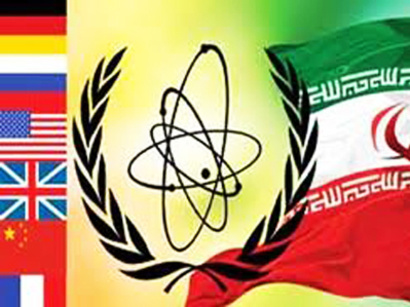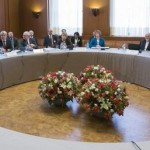
Second Round of P5+1 Talks with Iran
By Joshua Kyle Miller
Thursday marks the second round of the P5+1 talks with Iran. Sentiments from the West and Iran can be categorized as moderately optimistic, as both sides are trying to reach a deal that maximizes benefits and minimizes costs. However, this has crucial implications if both sides can’t come to an intersecting point because the demands on one side are greater than what the other is willing to pay – precluding further negotiations.
I ranian Foreign Minister, Javad Zarif, indicated that he believes it is possible to reach an agreement this week, but could “only talk for our side.” U.S. officials said Wednesday, “The Obama administration is hoping to rapidly secure a deal with Iran that would temporarily freeze the country’s nuclear program and buy time for diplomats to try to hammer out a more comprehensive agreement restricting Tehran’s future ability to seek atomic weapons.” The proposed freeze would be the first step in a series that could culminate as early as next year on an agreement that would decisively curb Iran’s ability to develop nuclear weapons.
ranian Foreign Minister, Javad Zarif, indicated that he believes it is possible to reach an agreement this week, but could “only talk for our side.” U.S. officials said Wednesday, “The Obama administration is hoping to rapidly secure a deal with Iran that would temporarily freeze the country’s nuclear program and buy time for diplomats to try to hammer out a more comprehensive agreement restricting Tehran’s future ability to seek atomic weapons.” The proposed freeze would be the first step in a series that could culminate as early as next year on an agreement that would decisively curb Iran’s ability to develop nuclear weapons.
A U.S. Official indicated that the U.S. and its allies stressed that a time frame would be necessary to ensure Iran’s nuclear program does not progress while negotiations are in process. Skeptics in Congress have imposed pressure on the talks to yield results by threatening new sanctions in spite of ongoing negotiations. One senior administration official proposed an amendment that would freeze President Obama’s ability to waive sanctions currently in place until or unless Iran assents to significant concessions; Iran would have to agree to stop all enrichment and adhere to U.N. Security Council Resolutions currently in effect by suspending their work on the Arak reactor and ballistic missiles in addition to following IAEA protocol on their nuclear program.
The fact that Iran has experienced crippling economic consequences for its nuclear program highlights the magnitude of the situation for Iran’s leadership, especially Ayatollah Khamenei, in preserving the state’s power and subduing its disgruntled populous. Bloomberg identified that the U.S. possesses considerable economic leverage, when the impact of oil sanctions have squeezed as much as $5 billion a month from Iran’s revenues. As a consequence of the sanctions and mismanagement in Iran, “Iran’s economy will contract 1.5 percent this year after having shrunk 1.9 percent in 2012,” according to International Monetary Fund estimates.
While the West possesses the upper-hand with economic leverage, other issues pose potential threats to the feasibility of success for the talks. Human rights violations are among these. The International Campaign for Human Rights in Iran (ICHRI) notes
“Since President Hassan Rouhani took office this August, Iran has executed more than 200 people. This sharp increase in the number of executions, specifically among drug traffickers and Kurdish activists, has created concern among civil society that extremist groups in the Iranian Judiciary and security apparatus have adopted this violent approach to show that the status quo remains.”
Another issue is terrorist groups such as Hezbollah, which USA Today deems “is expanding networks and deployment of fighters from Lebanon to the entire Middle East as part of its deepening alliance with Iran.” While these problems are significant and need to be addressed, however, setting them aside amid talks is essential to reduce the intractability between both sides on the nuclear issue.
The United States should stand firm and resolute in its demands that Iran take concrete and verifiable actions to resolve international concerns over its nuclear program in exchange for appropriate sanctions relief. Considering the U.S. has the upper-hand with economic leverage, it should take advantage of its position but not abuse it, avoiding actions which would cause the Iranians to doubt America’s willingness to negotiate in good faith.
While there is and will be much to be done after today’s talks, ensuring this unique opportunity between the West and Iran is not squandered will require the U.S. to be patient but firm with its demands and tactics – increasing the prospects of a great diplomatic victory for both countries and setting the path to address the other issues that continue to persist.






[…] Second Round of P5+1 Talks with Iran […]